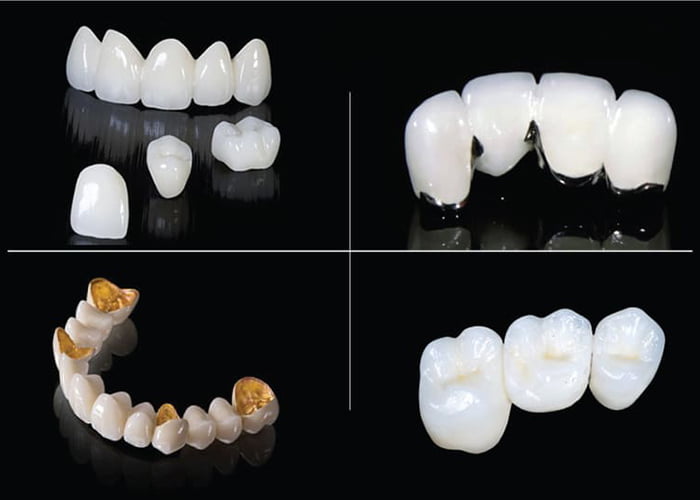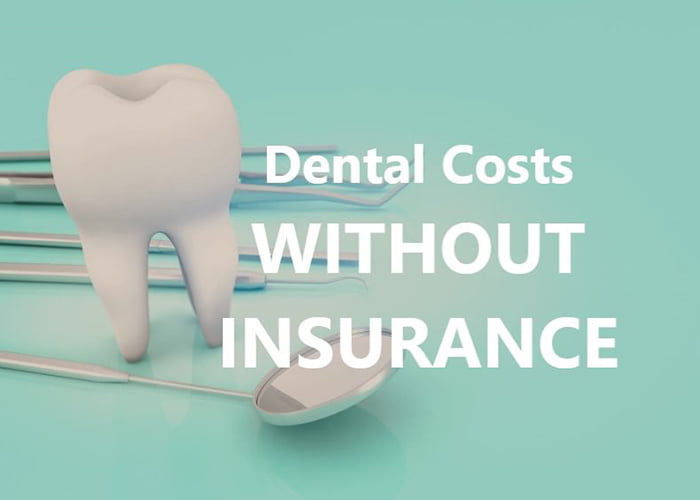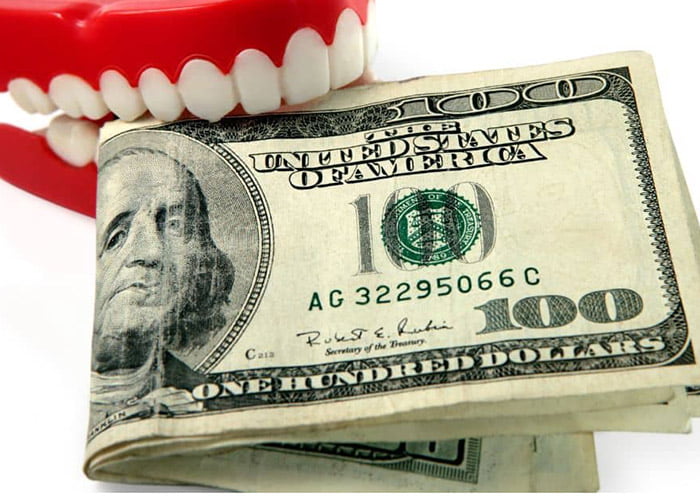Two questions may occur to you when your dentist advises that you need a dental crown: Exactly what type is best for me? And how much does a dental crown cost? You can better grasp the various dental crown types and costs by reading this short guide.
What are Dental Crowns?
Your teeth may suffer damage over time. There are many potential causes for this, including tooth decay, trauma, or simple wear and tear. Teeth can change in size or shape. Dental crowns are “caps” that fit over your teeth and have the shape of teeth. Imagine it as a snug-fitting cap for your tooth. The crown gives the tooth back its original size, shape, strength, and look.
The dental crown, which covers the visible part of the tooth, is bonded to your teeth. To replace missing teeth lost due to illness, decay, or an accident, crowns are also used in implant situations. When there is no natural tooth or root structure to support the crown, a dental implant is placed into the jawbone as an artificial root and used to support and maintain the crown in place.
What Type of Dental Crown Should I Choose?
Dental crown types can be made from a variety of materials, such as porcelain, ceramic zirconia, metal, and composite resin.
Gold crowns
In reality, gold crowns are made of copper mixed with other metals like nickel or chromium. Depending on each patient’s demands, some dentists may advise a gold crown as the best choice for back restorations. Due to their hue and appearance, gold crowns aren’t a very common choice today.
Principal advantages of gold crowns:
- They are robust and incredibly resistant.
- If taken care of properly, they last a long time.
- Less of your normal tooth needs to be removed because of their gradual rate of deterioration, similar to that of natural enamel
- They are perfect for back teeth’s posterior restorations, especially second molars.
Principal disadvantages of gold crowns:
- Inadequate aesthetics: clearly, they don’t resemble a genuine tooth.
- Some people may experience adverse effects from wearing gold alloy crowns, including allergic reactions or edema.
Read more: Common dental bridge problems
All Porcelain Crowns
This is unquestionably the most common style of the crown in use today. They are totally constructed of porcelain.
Some advantages include:
- The best and most natural-looking crowns are made of porcelain or ceramic. They are the same size, color, and shape as your neighboring teeth.
- The ideal solution for restoring front teeth.
- Since no metal is utilized and they are biocompatible, they are toxin-free.
However, the primary disadvantages of porcelain crowns are as follows:
- They lack the durability of metal crowns. Porcelain crowns can survive a very long time, but only if they receive proper care.
- Patients with bruxism should choose gold of PFM.
- They might cost more than other crown kinds, such as metal crowns.

Porcelain Fused-to-Metal Crowns (PFM)
Another common kind of dental crown is one made of porcelain fused to metal (PFM). Due to their metal construction, they offer both strength and beauty (due to the porcelain coat that covers the cap).
The principal advantages of PFM crowns include:
- They offer excellent durability and beauty.
- They have existed for more than 50 years. We are aware of their effectiveness.
- They cost less than crowns made entirely of porcelain.
PFMs do have certain disadvantages, too.
- The metal possibly causes a grey line at the gum line due to the metal in these crowns. This might not provide the same level of total aesthetic appeal as all-porcelain crowns.
- This kind of crown may be more prone to breaking against the neighboring teeth in the case of those who grind their teeth.
See more: What is a composite fillings ?
Zirconia Crowns
Zirconium is a relatively new substance that blends porcelain crown beauty with metal strength. Recently, high translucent and layered zirconia crowns have become in popularity.
The principal advantages of zirconia crowns are:
- They offer wonderful aesthetics.
- They are durable and robust (fewer possibilities of chipping or breaking).
- Since zirconia may be cut and shaped in the same dentist facility, the procedure might take less time. Sending them to a dental lab is not necessary.
- Due to its resilience, zirconia crowns are less likely to deteriorate over time.
- As metal-free crowns, they are biocompatible and unlikely to trigger allergic responses.
Zirconia crowns’ primary disadvantages include:
- The teeth they bite down on can rapidly become worn out due to their power.
- Adjusting solid zirconia might be challenging.
E-MAX: Lithium Disilicate
Crowns E-Max crowns are now the newest form of crowns used in dentistry. It is a specific kind of lithium disilicate all-ceramic crown (which is also light and thin).
These are the primary advantage of E-max crowns:
- Excellent aesthetics They appear fantastic in your mouth.
- They may be robust and long-lasting.
- They offer a fantastic option for both the front and back teeth.
E-Max Crowns’ primary disadvantages include:
- They might cost extra, particularly for dental work (who may or may not transfer that cost to you)
- When doing numerous units, some dental professionals have encountered failures when using E-Max for posterior teeth.
How much is a crown?
Depending on the kind of material used, dental crown prices per tooth can range from $500 to $3,000. Costs could also increase if the dentist needs to prepare the tooth more thoroughly before placing the crown. The price is established by:
- Location.
- Complexity: Is it impacted or broken off below the surface?
- Anesthesia, if necessary.
These additional expenses could be:
- Diagnostic expenses
- Options for treatment – Options for treatment include local anesthetic, costs for new crowns, dental cement, and after-hours or emergency appointments.
- If required, aftercare could also need a prescription, gauze, or ice packs.
How much is a porcelain crown?
Typically, porcelain crowns that are tooth-colored seem the most natural and are also some of the highest-priced options. Crowns made of porcelain are nearly always used on front teeth. These have an average price of $1,300 and range in price from $1,000 to $2,000. Costs for porcelain fused to metal crowns range from $800 to $1,400 per tooth.
This kind of treatment shouldn’t be disregarded even though it might not be a cheap dental crown. Ignoring the signs of damaged or rotting teeth can later lead to extensive and time-consuming surgery. A tooth that is hurting or damaged will never get better on its own.
How much does insurance pay for dental crowns?
Dental insurance typically contributes $400 toward the cost of a dental crown. The average cost of a dental crown is $1,300 without insurance and $900 with insurance. A porcelain crown might be slightly more expensive. Your crown’s price may be fully or partially covered by dental insurance. However, only specific crown types might be covered by your plan. To learn more about your insurance coverage, contact your provider.

Paying for Care – With and Without Insurance
The best course of action is to have an uncomfortable or damaged object cared for and removed when necessary. Here are various methods for paying for this procedure:
Insurance-friendly dentist: The best approach to cover this procedure’s cost, or at least a portion of it, is to use insurance to cover dental crown costs. Insurance companies typically pay for dental crowns since they’re essential for maintaining good oral health, including repairing weak or fractured teeth. However, if the crown’s primary purpose is to enhance your smile, it is seen as a cosmetic procedure and won’t be covered by insurance providers because it doesn’t help the patient’s dental health. Our Insurance Coordinator is happy to help in any way she can to help you know the exact cost to expect. We can call the insurance company to verify coverage for you, and explain how your specific dental benefits apply to the cost of treatment.If we are out-of-network with your insurance, we are happy to complete the paperwork and submit insurance claims for reimbursement on your behalf. Any reimbursement will be sent to you directly.
Flexible spending accounts (FSAs), commonly referred to as Flexible Spending Arrangements (FSAs), are pretax funds deducted from your paycheck and set aside specifically for use on medical expenses. The good news is that most firms offer FSA as a part of their employee benefits package, therefore it is only available to employers who offer it. These are frequently easy to utilize with an always-available debit card. You must use up all of your FSA money before the year is out since it won’t carry over to the following year. Here is where you can read more about FSAs.
Health savings accounts (HSA) – Similar to an FSA, an HSA is a savings account that is governed by the government that enables you to set away pretax income for medical expenses. HSAs differ from FSAs in that HSA funds carry over to the following year, but high-deductible insurance is still required. Additionally, HSA donations are tax deductible. Get more information about HSAs. Contributions are also tax deductible.
Dental School: Check out the local dental schools because they occasionally provide dental procedures like dental crowns. You’ll discover that the procedures are carried out by students at these institutions that provide inexpensive dental crowns. But don’t worry, a good dental school will have a licensed dentist on staff who will help the student dentist do the service.
Marysville, Dental Crown Cost
All popular credit cards, including Visa, Master Card, and American Express, are accepted by Dentists for life. We also collaborate with outside lenders like CareCredit. The best part is that we provide in-house payment plans with 0% interest, enabling you to receive the care you require without having to make a large upfront payment. You might be eligible for 0% interest from CareCredit to pay for a dental crown.
FAQ for Dental Crown Cost
Why is a dental crown so expensive?
The entire cost of the procedure is determined by the materials used, the technology required to construct a crown, and the dentist’s skill. Since insurance frequently covers the expense, you won’t have to worry too much about paying for this therapy.
Are dental crowns worth it?
Yes, it is worthwhile to have a dental crown. This is a long-term investment that can enhance the appearance and functionality of your teeth, whether you want to repair a weak tooth, safeguard your tooth after a root canal, or restore the beauty of your smile. They are a long-term investment in your health and aesthetics, whether they are used to repair a weak tooth, following a root canal, or for aesthetic purposes.
How much is a crown without insurance?
Dental crown prices can start at $1,300 per tooth, depending on the quality of the materials and the dentist’s experience.
What is the cheapest crown for a tooth?
The most economical type of crown is made of metal. Due to the fact that they are rarely visible, this form of crown is typically utilized on back molars. Crowns made of porcelain-fused metal combine affordability and beauty quite well.
Why choose Dentistforlife Dental?
At Dentist For Life, we understand the importance of finding a dental care provider that you can trust. Our team of experienced, qualified dentists and dental assistants provide top-notch dental care in a comfortable, relaxed atmosphere. We are committed to providing quality service every time you visit our office. We encourage you to contact us with any questions or comments you may have. Please call our office or use the quick contact via our website Dentis For Life or the hotline (937) 707-1111.




One Response
I m looking for 2 crown porcelain but my budget is. $1000 in cash does any buddy can help me my phone is 786 350 9915 I have no insurance has to be cash